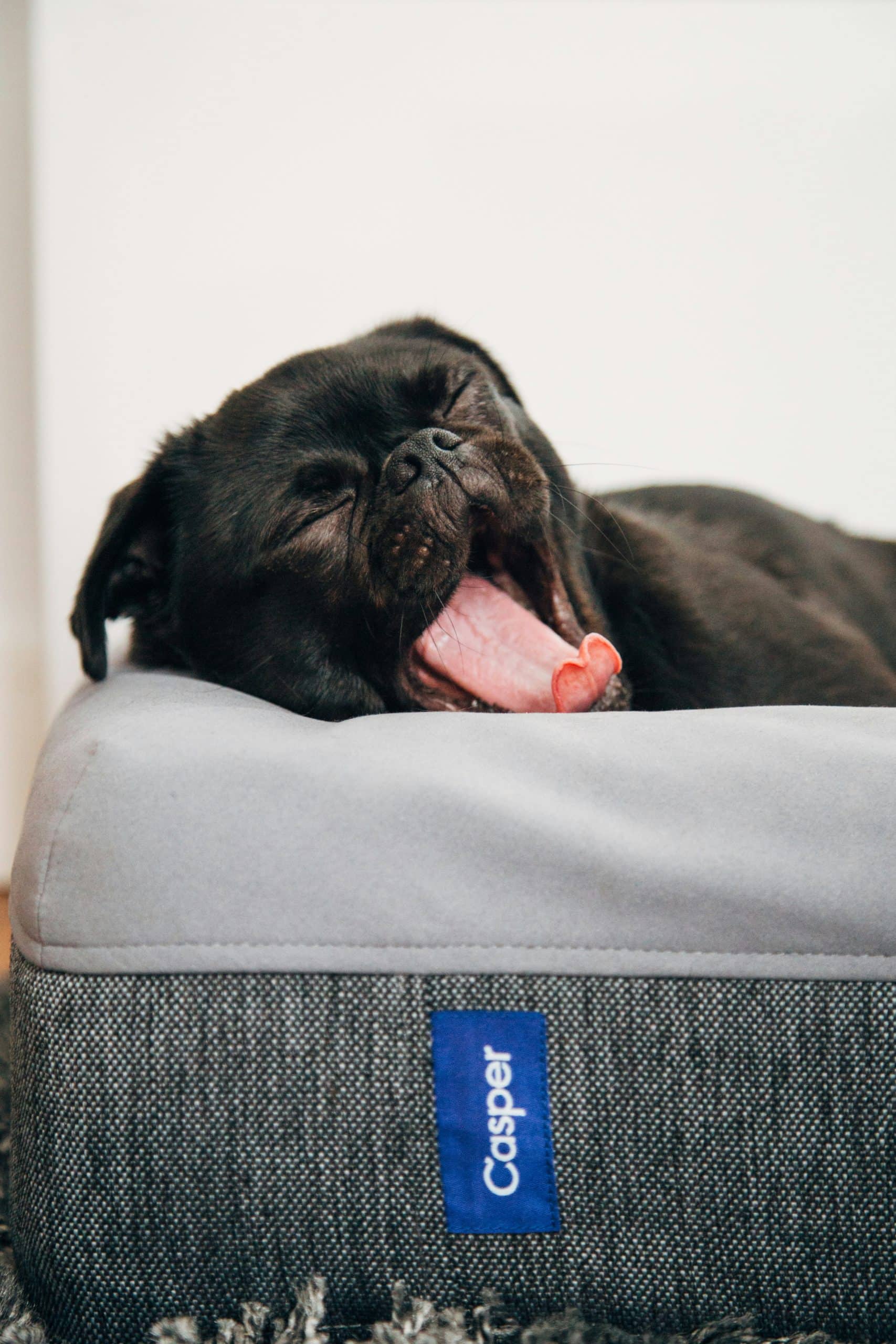Have you ever wondered if bully sticks could potentially cause diarrhea in puppies? This article aims to answer that very question. We'll explore the relationship between bully sticks and puppy digestion, shedding light on whether or not these popular dog chews can have any adverse effects. So if you're a new puppy owner or simply curious about the potential impacts of bully sticks on digestive health, sit tight and let's find out together!
What are Bully Sticks?
Bully sticks, also known as pizzle sticks, are a popular dog chew treat made from the dried penis muscles of bulls. These treats are natural and long-lasting, providing dogs with a satisfying chewing experience. The sticks are generally high in protein and low in fat, making them a healthy option for dogs of all ages and sizes. They are also highly digestible, which is why they are often recommended for puppies.
Can Bully Sticks Cause Diarrhea in Puppies?
Understanding Puppy Digestion
Puppies have delicate digestive systems that are still developing. Their stomachs produce less gastric acid, making it harder for them to break down and digest certain types of foods and treats. This is why puppies are more prone to digestive issues, including diarrhea, compared to adult dogs. It is essential to introduce new foods and treats to puppies gradually to allow their digestive system to adjust.
Potential Risk Factors
While bully sticks are generally safe and easy to digest for most puppies, there are certain risk factors that can contribute to diarrhea. These can include the quality of the product, bacterial contamination, and potential allergic reactions.
Common Symptoms of Diarrhea
Diarrhea in puppies can present with various symptoms, including loose or liquid stools, frequent bowel movements, straining during defecation, and changes in appetite or behavior. It is essential to monitor your puppy's bowel movements and overall health to identify any signs of diarrhea.

This image is property of images.unsplash.com.
Possible Causes of Diarrhea from Bully Sticks
Low-Quality Ingredients
Not all bully sticks are created equal. Some low-quality brands may use inferior ingredients or additives that can upset a puppy's stomach. It is crucial to choose high-quality bully sticks made from natural ingredients to minimize the risk of digestive issues.
Bacterial Contamination
Bully sticks, like any animal-based product, can potentially harbor bacteria such as Salmonella or E. coli. These bacteria can cause gastrointestinal issues, including diarrhea, if ingested by puppies. It is essential to select bully sticks from reputable brands that prioritize safety and conduct rigorous testing to ensure their products are free from contamination.
Allergic Reactions
Puppies, like humans, can develop allergies to certain foods or ingredients. While bully sticks are generally well-tolerated, some puppies may have sensitivities or allergies to the proteins in the treats. If your puppy experiences diarrhea or any other signs of an allergic reaction, it is best to discontinue the use of bully sticks and consult with your veterinarian.
Tips for Choosing Safe Bully Sticks
Look for High-Quality Brands
When selecting bully sticks for your puppy, opt for reputable brands known for their commitment to quality and safety. Look for manufacturers that source their ingredients from trusted suppliers and have strict quality control measures in place. This ensures that the bully sticks are made from high-quality, natural ingredients and are less likely to cause digestive issues.
Avoid Artificial Additives and Preservatives
Artificial additives and preservatives can be harsh on a puppy's digestive system. Choose bully sticks that are free from artificial flavors, colors, and preservatives. These unnecessary additives can increase the risk of diarrhea and other gastrointestinal problems in puppies.
Consider Natural Alternatives
If you are concerned about the potential risks associated with bully sticks, there are natural alternatives you can consider. Some options include dental chews made from sweet potatoes or natural rubber toys designed for chewing. These alternatives provide a safe chewing experience for puppies without the risk of digestive upset.

This image is property of images.unsplash.com.
How to Introduce Bully Sticks to Your Puppy
Gradual Introduction
When introducing bully sticks to your puppy, it is crucial to do so gradually. Start by giving your puppy a small piece of the bully stick and monitor their reaction. If they tolerate it well and show no signs of digestive upset, you can gradually increase the portion size over time. This gradual introduction allows your puppy's digestive system to adapt and minimizes the risk of diarrhea.
Supervision and Time Limits
Always supervise your puppy while they are chewing on a bully stick. Puppies can sometimes become overly enthusiastic and may try to swallow large chunks of the treat, which can lead to digestive blockages or choking hazards. Set a time limit for each chewing session to prevent excessive consumption and give your puppy's stomach a break.
Monitoring Digestive Health
After introducing bully sticks to your puppy, it is essential to monitor their digestive health. Keep an eye on their stool consistency and frequency. If you notice any changes, such as diarrhea, it may be a sign that the bully stick is not agreeing with your puppy's stomach. In such cases, it is best to discontinue the use of bully sticks and consult with your veterinarian.
Preventing Diarrhea from Bully Sticks
Feed Appropriate Amounts
To prevent diarrhea, it is crucial to feed your puppy appropriate amounts of bully sticks. Moderation is key, as excessive consumption can overload a puppy's digestive system and lead to digestive upset. Limit the amount of bully sticks you give your puppy each day and ensure they have a balanced diet that includes other essential nutrients.
Proper Chewing Techniques
Teaching your puppy proper chewing techniques can help prevent digestive issues. Encourage your puppy to chew the bully stick slowly and thoroughly, rather than trying to gulp it down quickly. This not only reduces the risk of choking but also aids in proper digestion.
Maintain a Healthy Diet
A puppy's overall health and digestion are influenced by their diet. Ensure your puppy is receiving a balanced and nutritious diet that meets their specific nutritional requirements. A healthy diet, combined with appropriate portions of bully sticks, can help prevent diarrhea and promote optimal digestive health.

This image is property of images.unsplash.com.
Treating Diarrhea in Puppies
Consult a Veterinarian
If your puppy develops diarrhea, it is essential to consult with your veterinarian. They can help determine the underlying cause of the diarrhea and recommend appropriate treatment options. Diarrhea can be a symptom of various health issues, and a professional evaluation is necessary for an accurate diagnosis.
Provide Plenty of Water
Diarrhea can quickly lead to dehydration in puppies. Make sure to provide your puppy with plenty of fresh water to drink. This helps replenish the fluids lost through diarrhea and prevents dehydration. If your puppy shows signs of severe dehydration or refuses to drink water, contact your veterinarian immediately.
Temporary Dietary Changes
In some cases, your veterinarian may recommend temporary dietary changes to help alleviate diarrhea in puppies. This can include feeding a bland diet consisting of easily digestible foods such as boiled chicken and rice. These temporary dietary changes allow the puppy's digestive system to recover and return to normal functioning.
When to Seek Veterinary Care
Persistent Diarrhea
If your puppy's diarrhea persists for more than a day or becomes increasingly severe, it is vital to seek veterinary care. Prolonged diarrhea can quickly lead to dehydration and can be a sign of an underlying health issue that requires medical attention.
Bloody or Black Stool
The presence of blood in your puppy's stool or black, tarry stool can indicate a more serious health problem. These are potential signs of internal bleeding and require immediate veterinary care.
Lethargy or Loss of Appetite
If your puppy becomes lethargic or shows a sudden loss of appetite, it may indicate a severe underlying health issue. These symptoms, in combination with diarrhea, should prompt immediate veterinary attention.
Conclusion
While bully sticks can be a tasty and enjoyable treat for puppies, it is important to introduce them gradually and monitor your puppy's digestive health. With proper precautions, such as choosing high-quality bully sticks and watching for any signs of diarrhea, you can minimize the risk of digestive issues and ensure your puppy's overall well-being. If any concerns arise, consult with a veterinarian to address them promptly and ensure your puppy's health and happiness.


